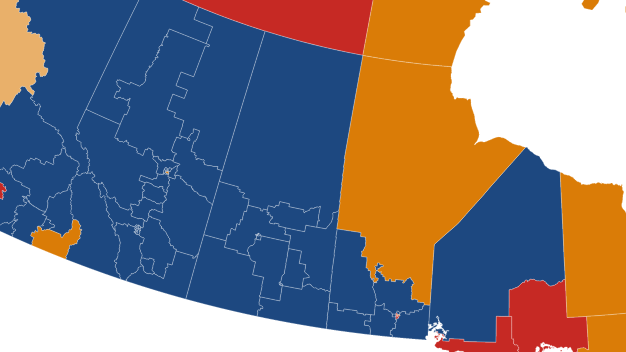The Indian Status Card is an unusual document: it is full of meaning. This numbered polymer rectangle is not only a symbol of the racist principles on which Canada was built, but can also be an object of desire, victimizing the person holding it.
Look at this strange object.
Edith Bélanger holds a degree in philosophy from Laval University. She is currently studying public administration in an indigenous context at the National School of Public Administration (ENAP). She is also a member of the Wolastoqiyik Wahsipekuk (Maliseet) First Nation.
The power of a plastic card
It has been two weeks since I went to the optician. One of my boys and I needed glasses. The federal government pays for the purchase of glasses for children. All you have to do is fill out an online form, and it takes about ten days. For me, the holder of a status card Indian
the situation is more complicated. Some vision care is covered by the federal government and, like with private insurance, the retailer must take steps to get reimbursed, but this time from the government. It seems that it is very lengthy and complicated the rest of us
.
Symbol of segregation
The Indian Status Card is an identity document issued by the Canadian government. The purpose is to confirm that its holder is a Indian
within the meaning of the Indian Act.
Since its passage in 1876, this law has been the main instrument by which Canada regulates relations between the British Crown and the first inhabitants of this country. If we look back to the time when the colonial wars between the European empires ended, the Aboriginal peoples were no longer allies in the eyes of the colonizers and became obstacles to the development of this beautiful and great country.
To use the terms commonly used at the time, we called it the Indian problem
This basic premise has resulted in several public policies that have been marked by contempt and discrimination. Everything must be done to integrate Aboriginal people into the Canadian social fabric through programs civilization
. As you know, a whole series of initiatives were launched that would make all the dictators of the world shudder with envy: reservations, bans on cultural practices, kidnapping of children, forced sterilizations, etc. Nevertheless, it was necessary to correctly identify these Indians because, obviously, with such an arsenal of segregation measures, it would have been tempting to forego labelling.
This is how the terms that define Indian status were created, and then came the card with the confirmation: a name, a number and the attribution to a band
thereby creating a new category of citizens.
To be or not to be
My grandfather was very suspicious of this status card, which was more of an inconvenience to him than anything else.
Not living on a reservation, he had learned to fear being labelled, harassed and restricted by this document. He had warned us all of the danger that the card posed. Following the same logic, there are different reasons for the refusal of registration in the Federal Register and I don’t think I’m wrong in saying that most of these refusals are related to this meaningful colonial symbolism hidden behind the status card. . If we add to this the ignorance of a part of the population, the prejudice and racism towards the Aboriginal people, it is easy to understand.
If you are a cardholder like me, you have surely experienced those embarrassing moments when you had to transform yourself from a simple consumer into an educator because you dared to show your plastic card.
The great illusion of privilege
And yet this card is the object of desire. There are hundreds, even thousands, who want to get one, even if that means counterfeiting it.
In fact, following investigations in 2018 into an epidemic of counterfeit cards, Canada had to tighten security checks and introduce a new version of the certificate that is more difficult to forge. The seductive power of the Indian status card is also based on prejudice. Many people believe that the polymer rectangle offers exceptional privileges. However, they do not seem to recognize the inconveniences that come with being infantilized by a regressive and, worse, discriminatory law. It seems that we would like the card, but not the status, which comes with inconveniences in several areas. And it goes far beyond the disapproving looks of cashiers and car salesmen. Last week, for example, an APTN report showed a blatant case of status discrimination. Indian
in the insurance sector.
We have uncovered the battle that Alexis Wawanoloath, a lawyer from the Abenaki nation, has been waging for two years against the Industrial Alliance, which apparently considers him too dangerous Indian
.
Admit that such privileges can also be dispensed with! Perhaps one day we will see indigenous identity liberated from the tyranny of the plastic card, but for now it is still part of our lives and the way we define ourselves, experiencing in many cases a colonialism that is still very much alive on a daily basis. For my part, two weeks later, my glasses have still not been ordered, I have reached the end of the pile. My grandfather was right again…

Twitter enthusiast. Organizer. Explorer. Reader. Zombie aficionado. Tv specialist. Thinker. Incurable internet maven.

;Composite=(type=URL,url=https://images.radio-canada.ca/v1/assets/elements/16x9/outdated-content-2020.png),gravity=SouthEast,placement=Over,location=(0,0),scale=1)

;Composite=(type=URL,url=https://images.radio-canada.ca/v1/assets/elements/16x9/outdated-content-2015.png),gravity=SouthEast,placement=Over,location=(0,0),scale=1)

;Composite=(type=URL,url=https://images.radio-canada.ca/v1/assets/elements/16x9/outdated-content-2016.png),gravity=SouthEast,placement=Over,location=(0,0),scale=1)

;Composite=(type=URL,url=https://images.radio-canada.ca/v1/assets/elements/16x9/outdated-content-2022.png),gravity=SouthEast,placement=Over,location=(0,0),scale=1)